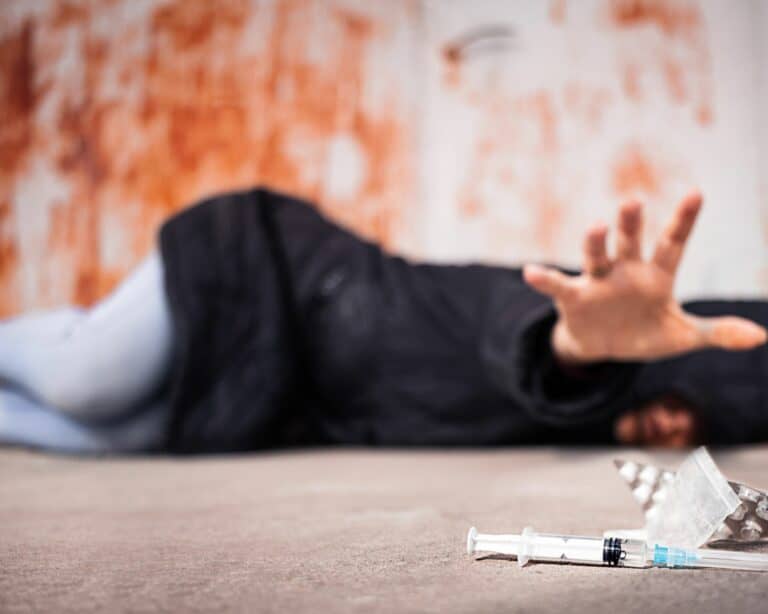Addiction is a chronic and progressive disease, which means it can worsen over time and your symptoms can reappear if you do not manage it properly. While attending detox is the first step in recovering from addiction, you should always enroll in a secondary rehab program to treat the root cause of your substance abuse. Unfortunately, some people go straight from detox to independent living and end up suffering from a relapse.
According to the National Institute of Drug Abuse (NIDA), the addiction relapse rate is between 40 to 60%.[1]
If you or a loved one experience a relapse after leaving detox, you might wonder what you should do. There are several things to consider that will help you determine what your next steps should be.
When you have suffered from a relapse after drug and alcohol detox, take the following steps:
Give Yourself Compassion
One of the biggest mistakes people make after relapsing is blaming themselves. Feelings of guilt and shame will only feed your addiction, causing you to continue abusing substances to numb your emotions. Instead, you should remember that relapse is common and it is a part of many people’s stories.
The most important thing about relapsing is how you respond. Continuing to blame yourself will only make things worse and the best thing you can do is show yourself some compassion. Acknowledge the mistake you made without letting it derail you from your overall goal: long-term recovery.
Determine Whether it Was a Lapse or Relapse
After you have acknowledged that you have made a mistake, it’s time to determine how severe your substance abuse has become. There are two different types of slips in addiction recovery: lapses and relapses. Lapses occur when you abuse a substance short-term and then quickly return to sobriety, while a relapse is continuous substance abuse that turns into dependency.
If you have been abusing drugs or alcohol for more than a couple of days, you are probably experiencing a full-blown relapse. It is important to determine whether you lapsed or relapsed, as this can affect the next steps you should be taking. People who experience a lapse might not require a medical detox, while relapses often involve physical dependence which must be treated professionally.
Ask a Sober Support for Help
Once you have determined whether you experienced a lapse or relapse, you must reach out for help. No matter how mild or severe your substance abuse was, having support is vital to addiction recovery.
If you participate in a 12-step program, this would be a good time to call your sponsor and explain what you are currently going through. On the other hand, you can contact your therapist for an emergency meeting or talk to a loved one who understands addiction. Once you have asked for help, your sponsor, therapist, or loved one can help you get back on track by supporting you and giving you advice, or helping you find a new recovery program to attend.
Additionally, telling someone that you have relapsed will provide you with the accountability you need to commit to recovery. Now that people know what you are dealing with, you are more likely to follow through with getting back on track and staying sober.
Consider Entering Drug Rehab
If you are not experiencing withdrawal symptoms, you should go straight into a drug rehab center. An addiction relapse indicates that you did not receive the tools and support required to maintain long-term recovery or that something about your recovery needs to be adjusted. An addiction treatment program can provide you with everything you need to learn how to maintain lifelong recovery from addiction.
Addiction treatment may include:
- An in-depth initial assessment
- An individualized treatment plan designed to suit your specific needs
- Evidence-based behavioral therapy
- Treatment for co-occurring mental health conditions
- Group counseling and family therapy
- Holistic treatments like meditation, exercise, and yoga
- Nutritional counseling
- Relapse prevention planning
- Aftercare support
Drug rehab services will teach you everything you need to know to successfully manage your sobriety outside of a treatment facility, lessening your chances of experiencing a relapse later on.

Get The Care You Need and Deserve
Woburn Addiction Treatment is a leader in the addiction treatment field, with proven success in facilitating long-term recovery. Our team of top clinical & medical experts specializes in treating addiction coupled with mental illness, ensuring that each person receives individualized care. Call us – we’re available 24/day, 7 days/week.
Find Solutions for Long-Term Recovery
Woburn Addiction Treatment providers are licensed, clinical treatment professionals committed to compassionate, cutting-edge, evidence-based practice shared in a vibrant exchange between client and clinician. At Woburn Addiction Treatment, no one is a passive recipient of our expertise. Our clinical team highly values the experiences of loved ones as well, incorporating family sessions as part of the individual’s treatment. If you or a loved one recently relapsed after detox, it’s time to consider drug addiction treatment. Drug rehab programs like Woburn Addiction Treatment can provide you with the tools and support you need to maintain sobriety for the rest of your life. In other words, our treatment techniques can allow you to avoid relapse successfully when you transition back into independent living.
To learn more about our drug and alcohol rehab programs in Massachusetts, contact Woburn Addiction Treatment today.
References:
- National Institute of Drug Abuse (NIDA): The Science of Addiction Treatment and Recovery, Retrieved May 2023 from https://nida.nih.gov/publications/drugs-brains-behavior-science-addiction/treatment-recovery


